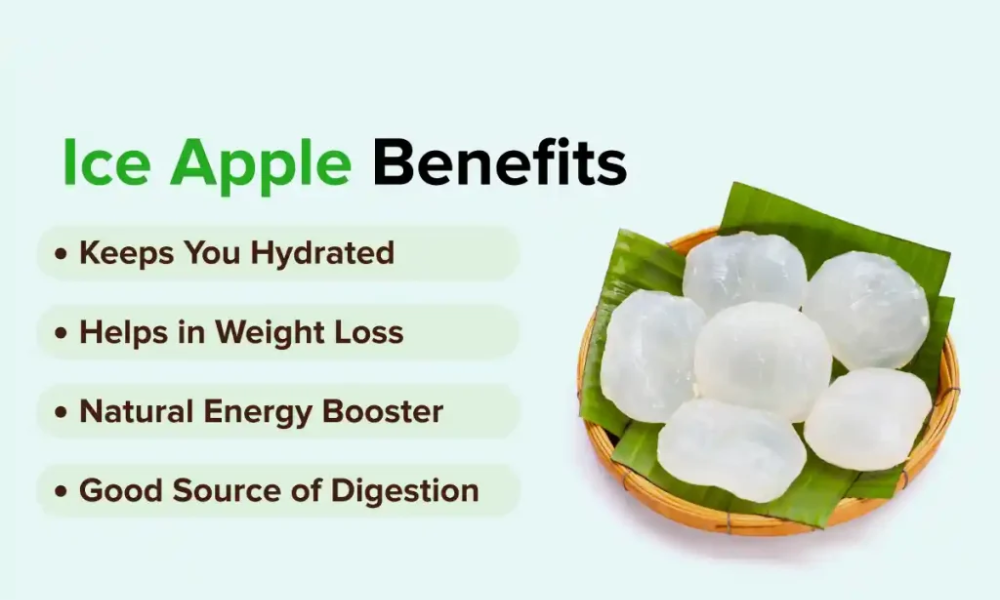The hospitality industry is a dynamic and competitive landscape, continually evolving to meet the ever-changing needs of travellers. For hotels, maximising revenue isn’t just about having a great location or beautiful amenities—it’s about implementing robust hotel sales strategies that drive consistent bookings, foster guest loyalty, and tap into emerging trends. In 2024, the key to unlocking your hotel’s full earning potential lies in a multi-faceted approach to sales management, which includes leveraging data, embracing new revenue streams, empowering your team, and utilising cutting-edge technology.
This comprehensive guide explores seven powerful hotel sales management strategies to help you increase your hotel’s profits in 2024 and beyond.
1. Leverage Data to Drive Strategic Decision-Making
In an increasingly data-driven world, knowledge truly is power. Hotel sales strategy hinges on the ability to harness data for better decision-making. By effectively collecting, analysing, and using data, you can gain insights into your target market, optimise your pricing strategies, and enhance guest satisfaction—all of which contribute to maximising revenue.
Market Research: The first step in leveraging data is understanding who your guests are. Use market research tools and guest data analytics to identify key demographics, preferences, and booking behaviours. This knowledge allows you to tailor your marketing campaigns and sales tactics to specific segments, whether it’s business travellers, couples seeking romantic getaways, or families on vacation.
Competitor Analysis: To stay competitive, you need to keep an eye on your rivals. Use data analytics tools to monitor their pricing strategies, occupancy rates, marketing initiatives, and guest reviews. This provides invaluable insights into where your hotel stands in the market, helping you adjust your sales tactics accordingly.
Revenue Management: Dynamic pricing is essential for maximising revenue. Implement revenue management software that uses real-time data to adjust room rates based on demand fluctuations, local events, and competitor pricing. A flexible pricing strategy ensures you’re capitalising on high-demand periods while offering attractive rates during off-peak times.
Guest Insights: Collect guest feedback via surveys and online reviews. Guest satisfaction data can highlight areas for improvement and guide you in refining your hotel offerings, from room configurations to amenities. Personalising services based on this feedback can significantly enhance guest loyalty, driving repeat business and positive word-of-mouth.
Utilise Business Intelligence Tools: Business intelligence (BI) platforms can help you aggregate and analyse data from various sources, providing a comprehensive view of your hotel’s performance. By tracking sales team effectiveness, guest preferences, and overall revenue trends, BI tools empower you to make data-driven decisions that improve your hotel’s profitability.
Partner with Data Analytics Experts: If you lack the resources to analyse data in-house, consider collaborating with data experts or third-party analytics companies. They can help translate complex data into actionable insights that inform your hotel sales management strategies.
2. Build Strategic Partnerships to Expand Your Reach
No hotel operates in isolation. Strategic partnerships can exponentially increase your sales reach and bring in new guest segments. Let’s take a look at key alliances that can help you boost your hotel’s bottom line in 2024.
Collaborate with Travel Agents and OTAs: Online travel agencies (OTAs) and travel agents remain vital channels for hotel bookings. To maximise your sales potential, establish strong relationships with these partners. Offering competitive commission rates and providing them with high-quality photos and detailed content can help make your property stand out. Participation in their promotional campaigns further extends your visibility to potential guests.
Forge Corporate Alliances: Corporate travel continues to be a lucrative market segment. Partnering with local businesses to create corporate packages can secure long-term business. Offer discounted room rates, flexible meeting spaces, and inclusive catering services tailored to the needs of business travellers.
Partner with Local Attractions: By collaborating with local attractions such as museums, amusement parks, or concert venues, you can create attractive bundled packages. These packages not only incentivise tourists to book with you but also enrich their travel experience, making your hotel the preferred choice for those visiting the area.
Leverage Tourism Boards and Destination Management Companies: Building relationships with local tourism boards and destination management companies can increase your hotel’s visibility in the travel market. These organisations often promote hotels as part of broader destination marketing campaigns, which can bring in additional guests from both domestic and international markets.
Table 1: Key Facts and Insights on Hotel Sales Management Partnerships
| Partnership | Benefit | Example |
|---|---|---|
| Travel Agents & OTAs | Increased sales reach, pre-qualified leads | Partner with major OTAs like Expedia or Booking.com |
| Corporate Alliances | Recurring revenue stream, brand loyalty | Offer discounted corporate rates to a local tech company |
| Local Attractions | Attracts leisure travellers, promotes experiences | Partner with a nearby amusement park to offer combined packages |
3. Embrace Innovative Revenue Streams to Diversify Income
While room bookings remain the primary revenue source for most hotels, it’s essential to explore innovative ways to diversify your income. Creating additional revenue streams can boost your hotel’s profitability by attracting new guests and enticing current ones to spend more during their stay.
Develop Theme-Based Packages: Design packages that cater to specific guest interests. For example, a “romantic getaway” package could include spa treatments, champagne breakfasts, and private dinners. These tailored offerings help differentiate your hotel and attract guests seeking unique experiences.
Host Events and Workshops: Consider hosting a range of events, from cooking classes and wine tastings to yoga retreats and photography workshops. These events can attract both hotel guests and local visitors, creating additional revenue streams while fostering a vibrant atmosphere within your hotel.
Read Also: Lobby Hotel Design Ideas to Boost Guest Experience (and Revenue!)
Implement Upselling and Cross-Selling Strategies: Upselling involves encouraging guests to book upgraded rooms or add premium services such as spa treatments or airport transfers. Cross-selling promotes other hotel services, such as dining packages, private tours, or in-room entertainment. Train your staff to upsell and cross-sell naturally, ensuring a positive experience without being pushy.
Explore Wellness Retreats: Wellness tourism is a rapidly growing trend. Consider offering wellness retreats that combine fitness classes, spa treatments, and healthy dining options. This strategy not only attracts health-conscious travellers but also boosts your room bookings, spa revenue, and F&B sales—all while promoting a holistic guest experience.
4. Empower Your Sales Team with the Right Tools and Training
A skilled, well-equipped sales team is crucial for executing a successful hotel sales strategy. Investing in the right tools and providing ongoing training ensures your team can perform at their best.
Invest in Sales Enablement Tools: Equip your team with Customer Relationship Management (CRM) software to centralise guest information, track leads, and streamline communication with potential clients. Additionally, consider sales automation tools that handle repetitive tasks, freeing up your team to focus on relationship-building and closing deals.
Provide Ongoing Sales Training: The hospitality industry is always evolving. Regular training programs help your sales team stay up-to-date on industry trends, new sales techniques, and the latest tools. Training should also focus on developing negotiation skills, improving product knowledge, and handling objections effectively.
Foster a Culture of Collaboration: Encourage teamwork and knowledge-sharing within your sales department. Regular meetings to discuss best practices, share successful strategies, and brainstorm new ideas can enhance performance and build a sense of camaraderie.
Implement Performance-Based Incentives: Motivating your sales team with incentives based on performance—such as commission on room bookings or sales targets—can drive motivation and foster healthy competition. Recognise top performers and reward them with bonuses, gifts, or extra vacation time to keep them engaged.
5. Embrace Technology to Streamline Operations and Personalize Guest Experiences
In 2024, technology plays a central role in enhancing hotel sales management and improving guest satisfaction. By embracing the right tech tools, you can streamline your operations, increase efficiency, and personalise guest interactions.
Implement a User-Friendly Booking Engine: Your hotel’s booking engine should be mobile-optimised, secure, and easy to use. Ensure it offers flexible payment options and clearly showcases your amenities, packages, and special offers to attract more bookings.
Utilise Guest Self-Service Tools: Empower guests by offering self-service tools like mobile check-in/check-out, digital room keys, and self-ordering at restaurants. These tools not only enhance guest satisfaction but also free up your staff to focus on higher-value tasks.
Leverage Guest Data for Personalisation: Use guest data—such as booking history and preferences—to offer personalised promotions and tailor packages that resonate with your audience. Send targeted emails that promote relevant packages or offer special deals for returning guests.
Explore Online Reputation Management Tools: Online reviews are more important than ever. Leverage reputation management platforms to track reviews, address negative feedback quickly, and highlight positive guest experiences. Positive reviews can drive bookings, so managing your online reputation is essential for maximising sales.
6. Cultivate Guest Loyalty Through Exceptional Service and Rewards Programs
A key element of your hotel sales strategy should focus on cultivating guest loyalty. Loyal guests are not only repeat customers, but they also act as brand advocates, bringing in new business through word-of-mouth recommendations.
Prioritise Exceptional Guest Service: Ensure that your entire team is trained to go above and beyond for guests. Provide personalised service, anticipate needs, and resolve any issues promptly. This creates memorable experiences that encourage guests to return.
Implement a Rewarding Loyalty Program: Loyalty programs incentivise guests to keep coming back. Offer points that guests can redeem for free nights, room upgrades, or exclusive experiences. Consider tiered loyalty programs that increase benefits for guests who stay more frequently.
Foster Guest Engagement: Stay in touch with guests after their stay. Send them personalised offers, birthday greetings, or invitations to exclusive events. Engage with them on social media to build a sense of community and keep your brand top-of-mind.
7. Embrace Continuous Improvement and Market Research
To stay competitive, hotel sales management must be a constantly evolving process. By regularly analysing performance metrics and staying current with industry trends, you can keep your strategy fresh and effective.
Regularly Analyse Sales Performance: Track key performance indicators (KPIs) such as occupancy rate, average daily rate (ADR), and revenue per available room (RevPAR). This data can highlight areas for improvement, helping you refine your sales strategies.
Conduct Market Research: The hospitality industry is ever-changing. Regular market research helps you stay ahead of emerging trends and adjust your strategies accordingly. This could involve analysing travel industry reports, attending conferences, or monitoring competitors’ activities.
Embrace Innovation: Don’t be afraid to experiment with new approaches. Whether it’s developing creative packages, collaborating with influencers, or implementing new technology, innovation keeps your hotel competitive and attracts new guests.
Read Also: Maximizing Revenue with Effective Hotel Security Risk Assessments: 5 Essential Steps
Conclusion
By implementing these seven essential hotel sales strategies in 2024, you can unlock your hotel’s full earning potential. Whether through data-driven decision-making, strategic partnerships, innovative revenue streams, or empowering your sales team, each strategy plays a pivotal role in maximising your hotel’s profits. Continuous improvement and staying ahead of industry trends will keep your sales efforts relevant, ensuring long-term success.




